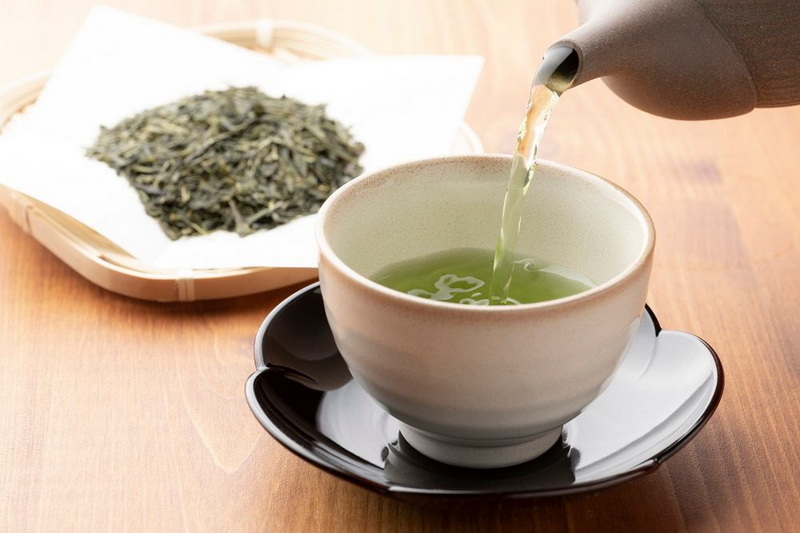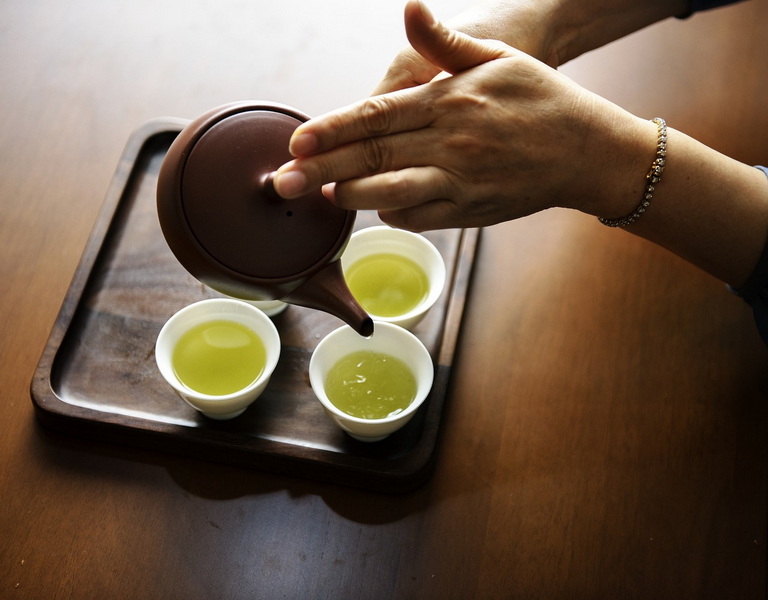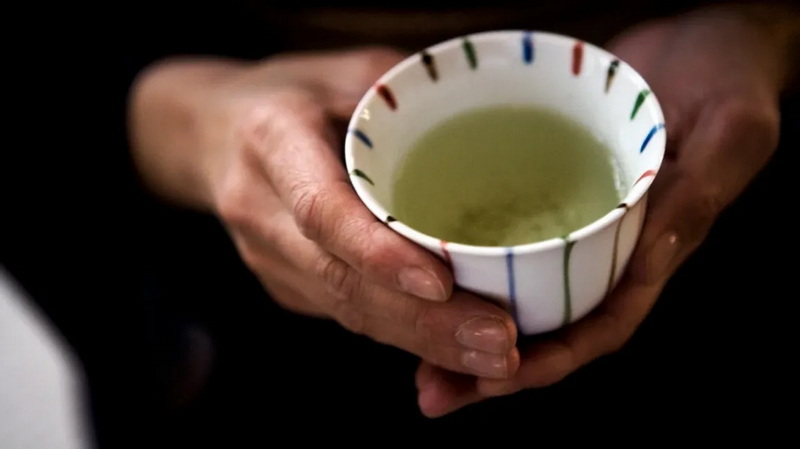Content Menu
● Understanding Green Tea Extract
>> Key Components of Green Tea Extract
● The Concept of Addiction
>> Can You Become Addicted to Green Tea Extract?
● Health Benefits of Green Tea Extract
● Potential Risks and Side Effects
● How Much Green Tea Extract Is Safe?
● Expanded Discussion on Addiction Potential
● Exploring Other Benefits
>> Enhanced Physical Performance
>> Skin Health
>> Diabetes Management
● Safety Precautions
● Conclusion
● FAQ
>> 1. Is it safe to take green tea extract daily?
>> 2. Can green tea extract help with weight loss?
>> 3. What are the side effects of too much green tea extract?
>> 4. How much caffeine is in green tea extract?
>> 5. Does L-theanine reduce caffeine jitters?
● Citations:
Green tea has gained immense popularity over the years, primarily due to its numerous health benefits. Among these benefits, green tea extract (GTE) stands out for its concentrated form of antioxidants, particularly catechins like epigallocatechin gallate (EGCG). While many people consume green tea and its extracts for their health advantages, a common question arises: Can you get addicted to green tea extract?
This article delves into the nature of green tea extract, its effects on the body, potential for addiction, and related health considerations.

Understanding Green Tea Extract
Green tea extract is derived from the leaves of the *Camellia sinensis* plant. Unlike traditional green tea, which is steeped in water, GTE is often available in supplement form, providing a more concentrated dose of its active compounds.
Key Components of Green Tea Extract
- Caffeine: Green tea contains caffeine, though in smaller amounts compared to coffee. A typical cup of green tea has about 15-40 mg of caffeine, while coffee can contain 100-200 mg per cup.
- Catechins: These are powerful antioxidants that help combat oxidative stress and inflammation in the body. EGCG is the most studied catechin and is known for its potential anti-cancer properties.
- L-theanine: This amino acid found in green tea promotes relaxation without drowsiness and may counteract some of the jittery effects of caffeine.
The Concept of Addiction
Addiction typically involves a compulsive need for a substance despite harmful consequences. It can manifest through physical dependence (withdrawal symptoms when not consumed) or psychological dependence (cravings and compulsive use).
Can You Become Addicted to Green Tea Extract?
While some individuals may develop a strong preference for green tea or its extract due to its energizing effects or health benefits, true addiction is unlikely for several reasons:
- Caffeine Tolerance: Regular consumption of caffeine can lead to tolerance, meaning that over time, individuals may need larger amounts to achieve the same stimulating effects. However, this does not equate to addiction.
- Mild Side Effects: Excessive intake of GTE can lead to side effects such as anxiety, insomnia, and digestive issues. These adverse effects often discourage overconsumption.
- Regulated Effects: The presence of L-theanine in green tea helps mitigate the stimulating effects of caffeine. This regulation reduces the likelihood of experiencing withdrawal symptoms associated with higher-caffeine beverages like coffee.
Health Benefits of Green Tea Extract
Despite concerns about addiction, many studies highlight the health benefits associated with GTE:
- Weight Management: Research suggests that GTE can aid in weight loss by enhancing fat oxidation and increasing metabolic rate. A systematic review indicated that GTE supplementation can reduce body mass index (BMI) and body fat percentage[8].
- Heart Health: Regular consumption may lower LDL cholesterol levels and improve overall cardiovascular health. Studies have shown that green tea can reduce triglycerides and cholesterol levels, contributing to a lower risk of heart disease[9].
- Cancer Prevention: Some studies indicate that EGCG might inhibit cancer cell growth and reduce tumor size. Laboratory studies have found that green tea extracts prevent the growth of prostate cancer cells[9].
- Brain Health: The combination of caffeine and L-theanine has been shown to improve cognitive function and reduce the risk of neurodegenerative diseases like Alzheimer's[4].
- Liver Health: GTE may help improve liver function by decreasing inflammation and oxidative stress. Some studies have shown reductions in liver enzyme levels among participants taking green tea extract[4].
Potential Risks and Side Effects
While moderate consumption is generally safe for most people, excessive intake can lead to several side effects:
- Gastrointestinal Issues: High doses may cause nausea or upset stomach. It is recommended to take GTE with food to minimize these effects[4].
- Liver Damage: Some reports have linked high doses of GTE supplements with liver toxicity. Symptoms such as abdominal pain or jaundice should prompt immediate cessation and consultation with a healthcare provider[5][10].
- Increased Heart Rate: Due to its caffeine content, some individuals may experience palpitations or increased heart rate when consuming high amounts of GTE[2][6].

How Much Green Tea Extract Is Safe?
The recommended dosage for green tea extract varies based on individual needs and health conditions. Generally:
- For weight loss or general health benefits, a daily intake of 250–500 mg is advised.
- Consuming more than 8 cups of green tea daily is possibly unsafe due to high caffeine levels and potential side effects associated with excessive catechin intake[2][4].
Expanded Discussion on Addiction Potential
While discussing addiction potential regarding substances like caffeine found in green tea extract, it's essential to consider individual differences in metabolism and sensitivity:
- Individual Sensitivity: Some individuals metabolize caffeine more slowly due to genetic factors affecting liver enzymes responsible for breaking down caffeine. This slower metabolism can lead to heightened sensitivity even at lower doses.
- Psychological Factors: For some users, the perceived benefits—such as increased energy or improved mental clarity—can create a psychological dependence where individuals feel they need GTE to function optimally throughout their day.
Exploring Other Benefits
Enhanced Physical Performance
Green tea extract has been linked with improved exercise performance due to its ability to increase fat oxidation during exercise:
- Studies suggest that consuming GTE prior to workouts may enhance endurance by promoting fat utilization as an energy source rather than relying solely on glycogen stores[8].
Skin Health
The antioxidants present in GTE also contribute positively towards skin health:
- Topical applications have been shown to protect against UV radiation damage while promoting skin healing processes due to their anti-inflammatory properties[3].
Diabetes Management
Emerging research indicates that GTE might play a role in managing blood sugar levels:
- Some studies suggest that regular consumption could lower fasting blood glucose levels among individuals with type 2 diabetes[4].
Safety Precautions
It's crucial for consumers considering GTE supplements or high quantities of brewed green tea to be aware of potential interactions with medications:
- Green tea extracts have been shown to interact negatively with certain medications like beta-blockers used for hypertension[5]. Always consult healthcare providers before incorporating any new supplement regimen.
Conclusion
In summary, while individuals can develop a strong preference for green tea extract due to its energizing properties and health benefits, it is unlikely that one would become addicted in the traditional sense. Moderate consumption—typically up to three cups per day—is considered safe for most people and can provide numerous health advantages without significant risk of addiction.
In conclusion, while individuals may develop a strong affinity for green tea extract due to its myriad health benefits—from weight management support through enhanced metabolic rates to improved cardiovascular function—it remains unlikely that one would experience true addiction akin to substances like nicotine or alcohol. Instead, moderate consumption—typically up to three cups per day—is considered safe for most people and offers numerous health advantages without significant risk factors associated with addiction.

FAQ
1. Is it safe to take green tea extract daily?
Yes, moderate consumption (up to three cups per day) is generally safe for most individuals. However, excessive intake may lead to side effects.
2. Can green tea extract help with weight loss?
Yes, studies suggest that green tea extract can enhance fat oxidation and increase metabolic rate, aiding in weight management.
3. What are the side effects of too much green tea extract?
Excessive intake may lead to nausea, upset stomach, increased heart rate, and potential liver damage in extreme cases.
4. How much caffeine is in green tea extract?
A typical cup of green tea contains about 15-40 mg of caffeine; however, concentrated extracts may contain higher amounts depending on dosage.
5. Does L-theanine reduce caffeine jitters?
Yes, L-theanine helps promote relaxation without drowsiness and can counteract some jittery effects associated with caffeine consumption.
Citations:
[1] https://www.drugs.com/npp/green-tea.html
[2] https://www.webmd.com/vitamins/ai/ingredientmono-960/green-tea
[3] https://www.medicalnewstoday.com/articles/269538
[4] https://www.healthline.com/nutrition/10-benefits-of-green-tea-extract
[5] https://www.nccih.nih.gov/health/green-tea
[6] https://abc7.com/green-tea-consumer-reports-extract-powder/1782986/
[7] https://www.urmc.rochester.edu/encyclopedia/content?contenttypeid=19&contentid=greenteaextract
[8] https://pubmed.ncbi.nlm.nih.gov/38031409/
[9] https://www.mountsinai.org/health-library/herb/green-tea
[10] https://pmc.ncbi.nlm.nih.gov/articles/PMC3746392/






























